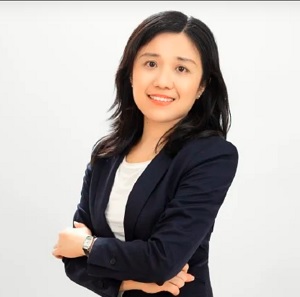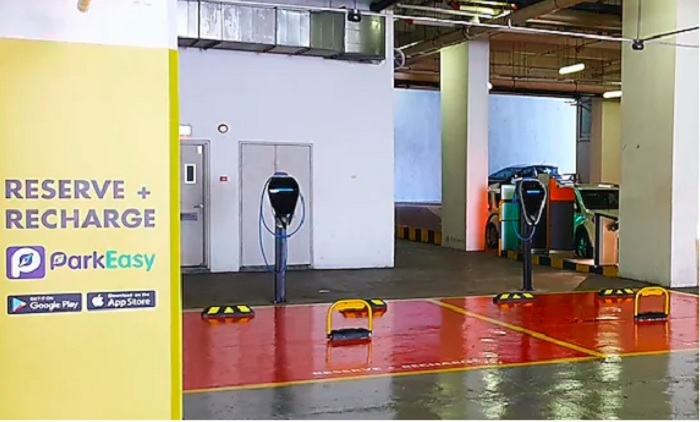- 50% acquisition bought out early investors KMP, Cradle Fund & 1337 Ventures
- Shell gets path to established, parking & e-mobility platform that can be scaled

Warren Chan’s eight years as an entrepreneur, running Pixelbyte Sdn Bhd with co-founders Eric Tan and Winnie Mah have yielded two key lessons. The first was not to force things but to observe and go with the flow as you are making changes. “In my early days, I used to try so hard to make things happen through sheer gungho spirit and willpower. What I’ve learnt now is to first observe the nature of things and work with them rather than push upstream,” he says.
The second lesson is about luck. “So much of life is the result of happenstance. Had I chosen another idea to build a startup upon, there is no guarantee that I would have achieved the same success despite having brought to it the same skills and talent.”
The success Warren speaks of occurred in early June when Shell Malaysia Trading Sdn Bhd agreed to acquire a 50% stake in Pixelbyte, which operates as ParkEasy – a mobile app that lets drivers park quickly in lots reserved for users. One can pre-book a lot or let the app guide you to an open lot, instead of driving randomly and hoping/praying you get lucky.
 If it strikes you odd that a global company would take an equal stake in a small startup instead of being majority partner, Seow Lee Ming (pic), Shell’s General Manager Mobility explains, “We see the advantages of leaving the business in the capable hands of its founders and management. We have worked closely with the founders and felt that a JV approach will be most suitable to bring out the combined strengths of ParkEasy and Shell.”
If it strikes you odd that a global company would take an equal stake in a small startup instead of being majority partner, Seow Lee Ming (pic), Shell’s General Manager Mobility explains, “We see the advantages of leaving the business in the capable hands of its founders and management. We have worked closely with the founders and felt that a JV approach will be most suitable to bring out the combined strengths of ParkEasy and Shell.”
While ParkEasy was launched in 2014, Shell only became interested in ParkEasy in 2018 after the two partnered to offer pre-booked slots for EV Charging.
Down-to-earth, Warren does not try to claim credit for some strategic move to entice Shell here. “I would not say that we have really changed our business model, because there was no additional development needed in order to accommodate EV charging. Just as always, we offer a car park reservation service. The only difference now is that many of our bays come attached with an EV charger.”
This is what Warren means by happenstance or luck. “As much as we should pat ourselves on the back and recognize our hand in our own success; we must simultaneously be humble and
admit that a huge part of it is also Lady Luck.”
A global energy producer trying to minimise the negative carbon byproduct of the oil and gas it sells, Shell has spent over a decade working to deliver smarter products and cleaner energy and infrastructure. Holding itself to a measurable deadline for such efforts to culminate, Shell set 2050 as its target to be a net-zero emissions business.
“As the world’s leading fuel retailer, we have been a part of the journeys people make every day for well over a century. Today, our ambition is to become the world’s leading mobility provider and one of the leading players in providing electric vehicle charging solutions globally,” said Seow.
Enter ParkEasy, which has become Shell’s first investment in a Malaysian tech startup, made under its Mobility’s Powering Progress Strategy in Southeast Asia.
Warren clarifies that the deal is not a capital injection. Shell is buying into ParkEasy by buying out existing investors Kumpulan Modal Perdana (KMP), Cradle Fund and 1337 Ventures. It is not clear what the investment returns are for the three parties.
“Nonetheless, with Shell on board there are additional resources that we now have access to and the key headlines you should be looking forward to in the next few years is EV, EV, EV,” says Warren.
But both parties are looking beyond Malaysia. Shell believes the investment gives it an immediate path to an established parking and e-mobility platform that can be replicated and scaled in Southeast Asia.
“With our experience in Malaysia, we can very quickly integrate with Shell’s other EV charging assets in other countries and soon enable cross-border connectivity. And then of course for countries in which Shell has yet to have EV charging assets, we can replicate our model there,” explains Warren.
As for Shell, “We value this opportunity to partner with a young Malaysian startup, and believe our combined strength will help us develop superior mobility products and services for our customers,” said Seow.
At present, ParkEasy has over 200 parking bays installed with the smart parking barrier with 64 bays equipped with EV charging. 50 of these bays are the result of the Shell collaboration. Over the next two years, ParkEasy expect to triple its number of EV bays. It also offers custom smart mobility solutions for enterprises, though this is a small part of the business at present.


